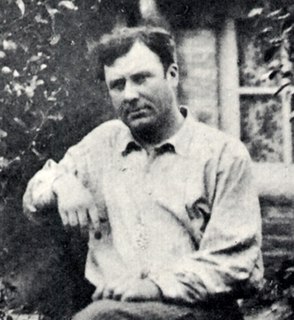A Quote by Charles Dickens
The haggard aspect of the little old man was wonderfully suited to the place; he might have groped among old churches and tombs and deserted houses and gathered all the spoils with his own hands. There was nothing in the whole collection but was in keeping with himself nothing that looked older or more worn than he.
Related Quotes
Everlastingly chained to a single little fragment of the Whole, man himself develops into nothing but a fragment; everlastingly in his ear the monotonous sound of the wheel that he turns, he never develops the harmony of his being, and instead of putting the stamp of humanity upon his own nature, he becomes nothing more than the imprint of his occupation or of his specialized knowledge.
For more than twenty years by my own work and personal initiative, I have gathered from all the old streets of Vieux Paris photographic plates, 18 x 24 format, artistic documents of the beautiful civil architecture of the 16th to the 19th century: the old hôtels, historic or curious houses, beautiful facades, beautiful doors, beautiful woodwork, door knockers, old fountains This vast artistic and documentary collection is today complete. I can truthfully say that I possess all of Vieux Paris.
and for a moment he held out his hands as if to steady himself or as if to bless the ground there or perhaps as if to slow the world that was rushing away and seemed to care nothing for the old or the young or rich or poor or dark or pale or he or she. Nothing for their struggles, nothing for their names. Nothing for the living or the dead.
And, moreover, when it happens that both are sincere and good, nothing will mix and amalgamate more easily than an old priest and an old soldier. In reality, they are the same kind of man. One has devoted himself to country upon earth, the other to his country in heaven; there is no other difference.
We might adapt for the artist the joke about there being nothing more dangerous than instruments of war in the hands of generals. In the same way, there is nothing more dangerous than justice in the hands of judges, and a paint brush in the hands of a painter! Just think of the danger to society! But today we haven't the heart to expel the painters and poets because we no longer admit to ourselves that there is any danger in keeping them in our midst.
The present relationship existing between husband and wife, where one claims a command over the actions of the other, is nothing more than a remnant of the old leaven of slavery. It is necessarily destructive of refined love; for how can a man continue to regard as his type of the ideal a being whom he has, be denying an equality of privilege with himself, degraded to something below himself?
When every one is to cultivate himself into man, condemning a man to machine-like labor amounts to the same thing as slavery. If a factory-worker must tire himself to death twelve hours and more, he is cut off from becoming man. Every labor is to have the intent that the man be satisfied.... His labor is nothing taken by itself, has no object in itself, is nothing complete in itself; he labors only into another's hands, and is used (exploited) by this other.
The Little Boy and the Old Man Said the little boy, "Sometimes I drop my spoon." Said the old man, "I do that too." The little boy whispered, "I wet my pants." I do that too," laughed the little old man. Said the little boy, "I often cry." The old man nodded, "So do I." But worst of all," said the boy, "it seems Grown-ups don't pay attention to me." And he felt the warmth of a wrinkled old hand. I know what you mean," said the little old man.




































